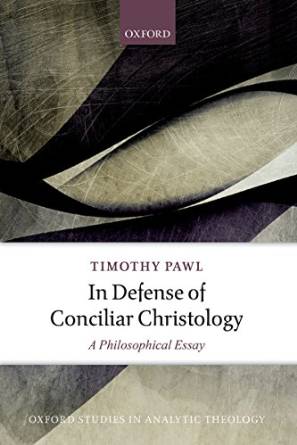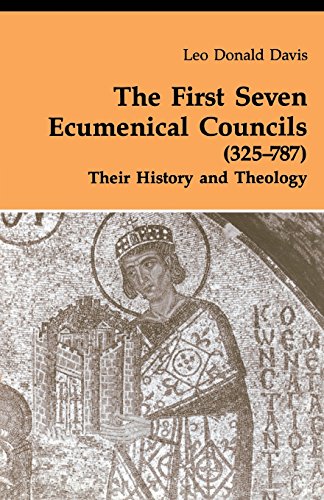Podcast: Play in new window | Download
Subscribe: Spotify | Email | RSS
 Roman Catholic theology is officially committed to the teachings of 21 councils. Eastern Orthodox theology accepts only the first seven of these, called “the seven ecumenical councils.” While no Protestant accepts the authority of all 21 Catholic councils, Protestantism has been ambivalent about the first seven – with a few accepting all, many accepting the first four, some eschewing all such in preference for the Bible, and some accepting such teachings only insofar as they are in fact summarizing the teachings of scripture. In this book Dr. Timothy Pawl constructs a philosophical defense of the self-consistency of “conciliar christology,” meaning all that these first seven councils claim about Christ.
Roman Catholic theology is officially committed to the teachings of 21 councils. Eastern Orthodox theology accepts only the first seven of these, called “the seven ecumenical councils.” While no Protestant accepts the authority of all 21 Catholic councils, Protestantism has been ambivalent about the first seven – with a few accepting all, many accepting the first four, some eschewing all such in preference for the Bible, and some accepting such teachings only insofar as they are in fact summarizing the teachings of scripture. In this book Dr. Timothy Pawl constructs a philosophical defense of the self-consistency of “conciliar christology,” meaning all that these first seven councils claim about Christ.
In this episode, Dr. Pawl briefly recaps the seven ecumenical councils, and then discusses some crucial definitions in his book: “supposit,” “person,” and “nature.” We then discuss whether or not catholic christology should be understood as God becoming embodied in a human body, or God coming to cooperate and live along with a certain man. Finally, Dr. Pawl explains why he discusses these issues in terms of incompatible predications (terms applied to Christ) rather than incompatible properties (attributes of Christ).
Correction: In the introduction I say that Dr. Pawl taught at Notre Dame. As his C.V. says, he held a visiting fellowship there, but this did not (as I wrongly assumed) include teaching any classes (other than the occasional guest lecture). Thanks to Dr. Pawl for the correction.
Next week we’ll hear about Dr. Pawl’s proposed solution, and what he thinks of other recent approaches in the literature, such as “kenosis” and “two minds” theories about the incarnation.
Links for this episode:
- Dr. Pawl’s personal home page

- In Defense of Conciliar Christology (kindle)
- Dr. Pawl’s page at the University of St. Thomas
- “Is God Becoming Man Logically Impossible?“
- The Tentative Apologist 86. Making Sense of the Incarnation: A Conversation with Timothy Pawl
- podcast 30 – The Council of Nicea
- standard formulas [about the Trinity]
- Nestorius
- Cyril of Alexandria
- Leo I
- Justinian I
- Theodore of Mopsuestia
- The Seven Ecumenical Councils
- Thomas Morris, The Logic of God Incarnate
- Leo Donald Davis, The First Seven Ecumenical Councils (325-787): Their History and Theology
- Joseph Pohle, Christology: A Dogmatic Treatise on the Incarnation (ebook)
- Today’s thinking music is “Recovered Memory“ by Admiral Bob.

Pingback: Vexing Links (8/5/2016) | vexing questions
“Trumpian politics”
Thought we were about to get a political lecture there for a second.
Comments are closed.